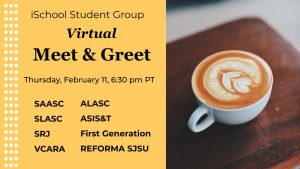 In February of this year, the Thomas Memorial Library in Cape Elizabeth, Maine, opened the doors of its newly renovated building. What is not new, however, is their partnership with Family Place Libraries, a network of libraries promoting early literacy and play-based engagement with families of young children. The initiative operates nation-wide with a training institute based in Centereach, New York. Since 2014, Assistant Director and Children’s Librarian Rachel Davis and her staff at Thomas Memorial were trained and are busy implementing the core competencies taught by the Family Place Institute. Davis says, “I had reviewed the book, The Family Centered Library Handbook for Library Journal when it was first published, and was impressed with the philosophy of Family Place Libraries. When I heard that they were seeking Maine libraries as applicants for their grant cycle in 2013, I submitted an application for Thomas Memorial Library to be included.”
In February of this year, the Thomas Memorial Library in Cape Elizabeth, Maine, opened the doors of its newly renovated building. What is not new, however, is their partnership with Family Place Libraries, a network of libraries promoting early literacy and play-based engagement with families of young children. The initiative operates nation-wide with a training institute based in Centereach, New York. Since 2014, Assistant Director and Children’s Librarian Rachel Davis and her staff at Thomas Memorial were trained and are busy implementing the core competencies taught by the Family Place Institute. Davis says, “I had reviewed the book, The Family Centered Library Handbook for Library Journal when it was first published, and was impressed with the philosophy of Family Place Libraries. When I heard that they were seeking Maine libraries as applicants for their grant cycle in 2013, I submitted an application for Thomas Memorial Library to be included.”
The Family Place Library initiative began in 1996 through collaboration with different community partners, culminating with the publication of The Family-Centered Library Handbook (Neal & Schumann, 2007). They offer guidance for designing family-friendly spaces, emphasizing the importance of creative play, inclusion of toys, genrefication strategies, promotion of language development through various types of programming, and parent-child workshops that that comfortably connect parents with experts from the community. “It has helped us frame our programs and services around literacy and the whole family, emphasizing the idea that literacy is about a lot more than reading and writing, and includes singing, talking, listening, and play as well,” Davis says.
After grant approval, the next step in becoming a Family Place Library is enlisting another library administrator to travel with you to the Family Place Training Institute for the three day in-person training session. Another seven hours of online training is required, along with a commitment to begin transforming spaces and programming to align with the Family Place philosophy. For Davis, “The Family Place philosophy guides a lot of our program planning, and has helped us reorganize our early childhood materials collections as well. We meet children where they are, and try to help children develop a sense of mastery and independence through the way we organize the collection, as well as the way we structure our programs. We also aim to provide support for parents through the same means.”

The partnership with Family Place Libraries has fostered new outreach efforts and partnerships within the wider community of Cape Elizabeth. According to Davis, “Through our Parent-Child Workshop, we’ve developed partnerships with local professionals who have returned to us each year, not only as participants in the workshop, but in offering their advice about materials that might be useful for our patrons. These include dietitians, speech pathologists, university and college professors, and musicians. We also have a more cooperative relationship with our local daycares and preschools, recognizing that we are all serving the same children and have the same goals.”
You can read about the Family Place Libraries initiative here, and explore other libraries who have been highlighted implementing their philosophy here.
Family Place FAQs can be found here.
___________________________________________________________
Author Bio: Megan Smith is a first-year MLIS student at SJSU, pursuing the youth services track. Her academic interests include literary criticism and theory, rhet/comp, philosophy and children’s literature. Her passions are reading, early literacy, working with children, perfecting silly dance moves, bubble machines, and good coffee. She works part-time substituting at two different libraries (including Thomas Memorial!) while juggling being a wife and mother to two young girls. You can find her on the SJSU blogging platform here, at her personal blog, Too Many Cardigans, or on Goodreads.


